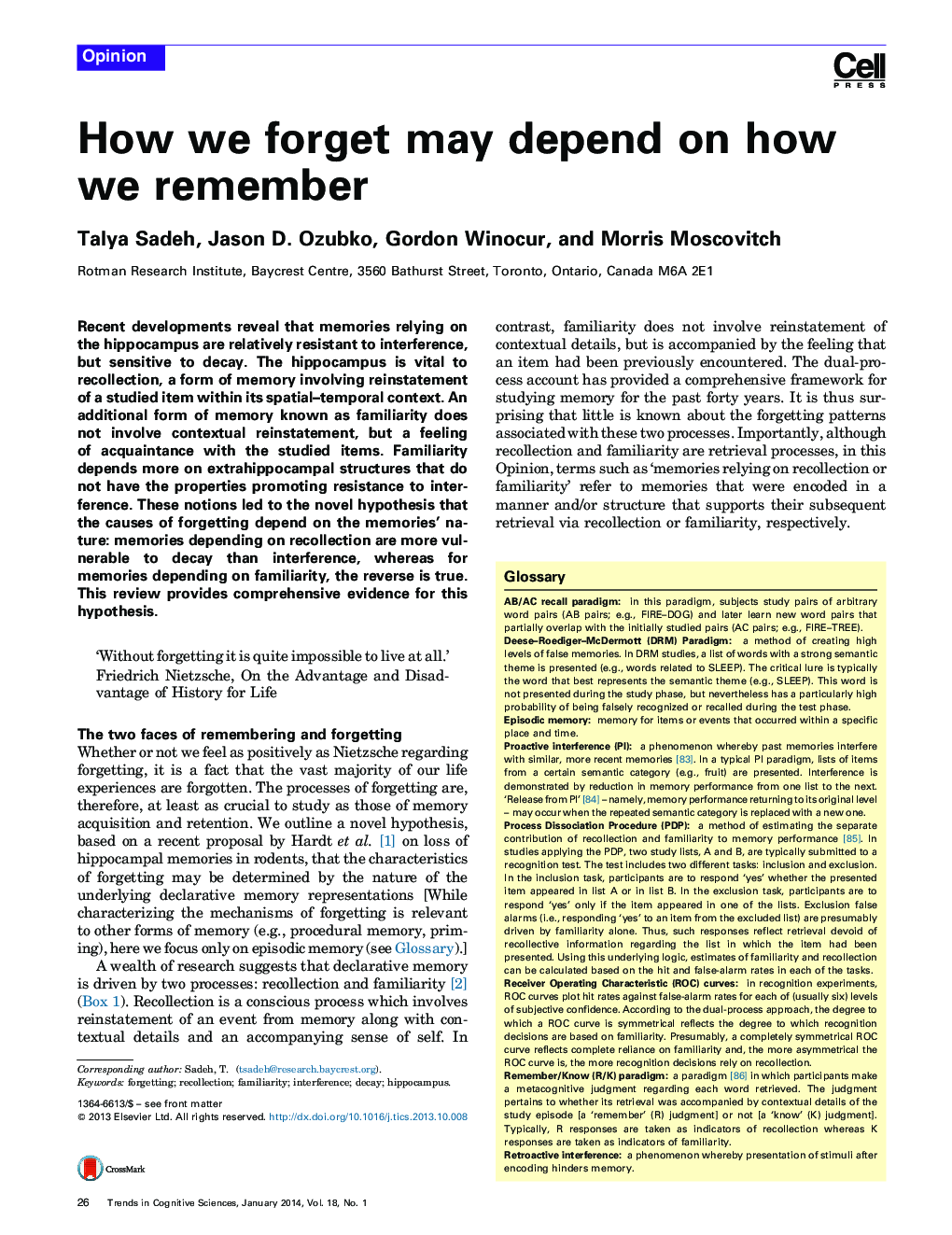| Article ID | Journal | Published Year | Pages | File Type |
|---|---|---|---|---|
| 141443 | Trends in Cognitive Sciences | 2014 | 11 Pages |
•Hippocampal memories are coded in orthogonal, non-interfering representations.•The hippocampus supports recollection – memory involving contextual reinstatement.•Memories depending on recollection are relatively resistant to interference but more vulnerable to decay.•Familiarity depends on extrahippocampal neural structures that are not resistant to interference.•Memories depending on familiarity are more vulnerable to interference than to decay.
Recent developments reveal that memories relying on the hippocampus are relatively resistant to interference, but sensitive to decay. The hippocampus is vital to recollection, a form of memory involving reinstatement of a studied item within its spatial–temporal context. An additional form of memory known as familiarity does not involve contextual reinstatement, but a feeling of acquaintance with the studied items. Familiarity depends more on extrahippocampal structures that do not have the properties promoting resistance to interference. These notions led to the novel hypothesis that the causes of forgetting depend on the memories’ nature: memories depending on recollection are more vulnerable to decay than interference, whereas for memories depending on familiarity, the reverse is true. This review provides comprehensive evidence for this hypothesis.
